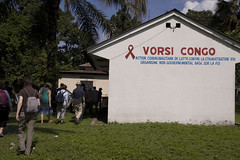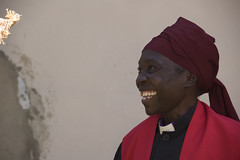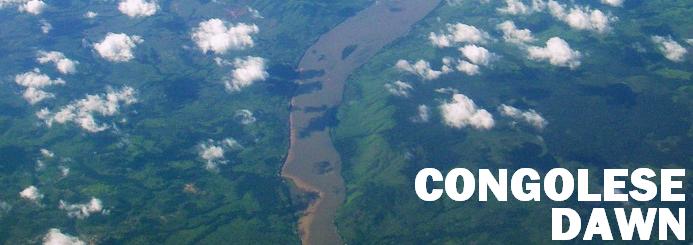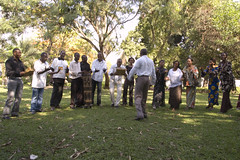As I sit here on a cold morning in a country cottage in the heart of middle
England, it is surreal to know that 36 hours ago I was in the Kinshasa, the bustling
capital city of the country which is dominating our headlines with images of war and an ever growing refugee crisis. My mind is full of contrasting images; lush tropical rain
Forrest and the polluted congested roads of
Kinshasa, my luxurious home and the thousands of abandoned villages.
The last two weeks, without any exaggeration have probably been the most informative and life changing two weeks of my adult life so far. I could write for hours on exactly what we did but I'd like to say share a few thoughts.
I think that I have learnt what 'development' as a concept away from its theoretical explanation, looks like in reality. Development is not pouring food aid into a country and sticking a plaster over its wounds. It is not building a school for a rural village, who lets face are generally more capable of construction. Whilst these are sometimes necessary, real development needs to come from the country itself. Christian Aid are always talking about 'partnership', which although I always thought sounded like a nice idea, I am ashamed to say was slightly dubious about. However, I have seen first hand how it is investing in 'partnerships' with local people who know what they need and how to do it which can develop
communities and change lives. In our short visit to the
DRC, we saw time and time again, how just a small amount of money from Christian Aid could provide the resources for a community to start training people in a new skills which would the be multiplied when they taught other. Our partner
PDI, focus on training people in more efficient and sustainable ways of farming. They have set up some training centres where
people can come on courses ranging from just one day to a couple of months, they then go back to
their communities and train others. Similarly, in the area of HIV, our partner
Vorsi Congo, focuses on training
religious leaders on HIV awareness to not only combat the spreading of the virus but also the huge stigma
attached to it. They realise that by training the local church leader or Imam, they can reach whole
communities because of the importance of
religion in society. They estimate that through the country they have educated literally millions of people through this programme. It is still a drop in the ocean but it is far more effective than a
government sponsored
pamphlet that no-one respects let alone no-one can read or. May be this is true meaning of Christian Aids strap line, 'You add. We multiply.'
I also understood the importance of the
accountable governance work which is being done. We visited an organisation called
RECIC which helps educate people on their rights and
responsibilities as a citizen and to work together as
communities to hold the authorities to account. We don't get party
political, but we do support politics. As long as people are
intimidated by a
policeman with a gun
demanded money for a fine which the population is completely ignorant of then corruption will never cease. And if corruption doesn't cease the country will never be able to
function. It was so exciting to visit one of the groups that
RECIC has
been supporting, we could see how their community had really been changed by standing up to the authorities and demanding
their rights.
And yet, despite all this success and sense of hope, underlying it lies the reality that the projects we saw are not going to change the country whilst there is still war. Organisations like Christian Aid cannot bring peace but simply aid those who are suffering in the mean time. But when peace eventually comes, which I believe it will, hopefully there will be a society which is strong enough to develop and be the paradise it was made to be.






